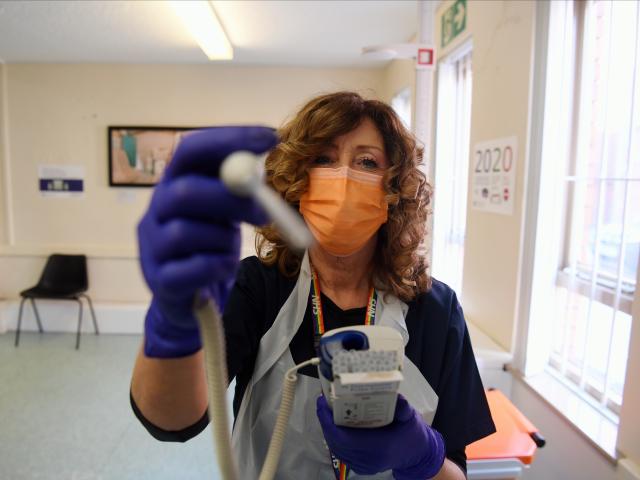
8 key issues the Wales COVID-19 Evidence Centre has reviewed so far
In March 2021, the Wales COVID-19 Evidence Centre (WCEC) was tasked with reviewing the wealth of vital COVID-19 research evidence available to make sure decision makers have the most up-to-date evidence to help make key decisions around health and social care policy and practice in Wales.
So far, the Centre, which is part of Health and Care Research Wales, has reviewed research into a number of areas including these eight key topics:
The WCEC has reviewed evidence on the use of devices which patients can use to monitor oxygen levels at home to guide decisions about the care COVID-19 patients receive from their GP, and whether they are admitted to hospital.
From their review, the Centre concluded it is unclear whether the devices are safe or cost effective. They found insufficient evidence to support the use of these devices to make decisions about patient care.
Vaccination is critical to the fight against COVID-19, but there are low vaccination rates in some under-served populations such as ethnic minority, homeless or migrant groups.
Vital work from WCEC looked at the evidence around barriers to vaccination in these communities and reviewed research on how vaccination uptake could be increased.
Health and social care workers may be at risk of developing negative mental health outcomes due to the effect of providing care to severely ill patients with COVID-19.
Evidence from studies reporting on the mental health of these workers has been summarised by WCEC to help inform future decisions about the availability of mental health support to key workers.
The Centre reviewed research looking at the effectiveness of face coverings in reducing the spread of the virus and how effective different types of face coverings are when used in the community.
This evidence was used in July 2021 to inform Wales’ move to alert level 0, and to support the continued wearing of face masks, along with hand hygiene, social distancing and ventilation, as a key part of protecting Wales against the virus.
Healthcare education for medical, nursing, dental and allied healthcare students was severely affected by the pandemic and the WCEC was tasked with investigating the effectiveness of the alternative education methods that were used, like remote learning.
The role played by children and educational settings in the spread of COVID-19 has been a constant concern throughout the pandemic, and as a result a range of safety measures were introduced worldwide.
The aim of this review was to identify how effective these measures are and to inform discussions around whether they should stay in place in Wales.
During the pandemic many patients were not able to access an endoscopy, a procedure the stomach or gut are looked at using a thin flexible tube with a camera and light at one end.
This report from WCEC highlights new ways to improve the timeliness of access to an endoscopy and ways to address the backlog of patients waiting for this test such as patients with suspected cancer.
The COVID-19 pandemic has caused a significant disruption to the education of 16 to 19-year-olds who are at a crucial time in their lives as they transition into further study or employment.
Looking at young people who have experienced significant gaps in their education because of the pandemic, the WCEC reviewed research evidence around strategies to support learning and wellbeing for this group.
Keep up with the latest news from WCEC on Twitter and come along to the first Wales COVID-19 Evidence Centre evidence into practice symposium.